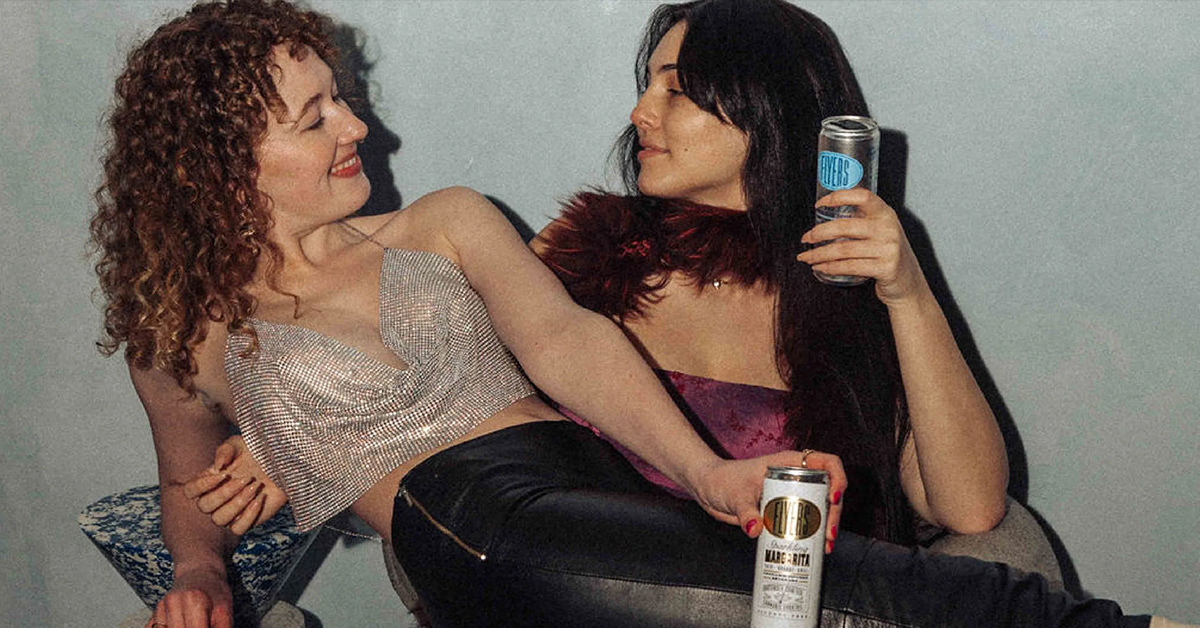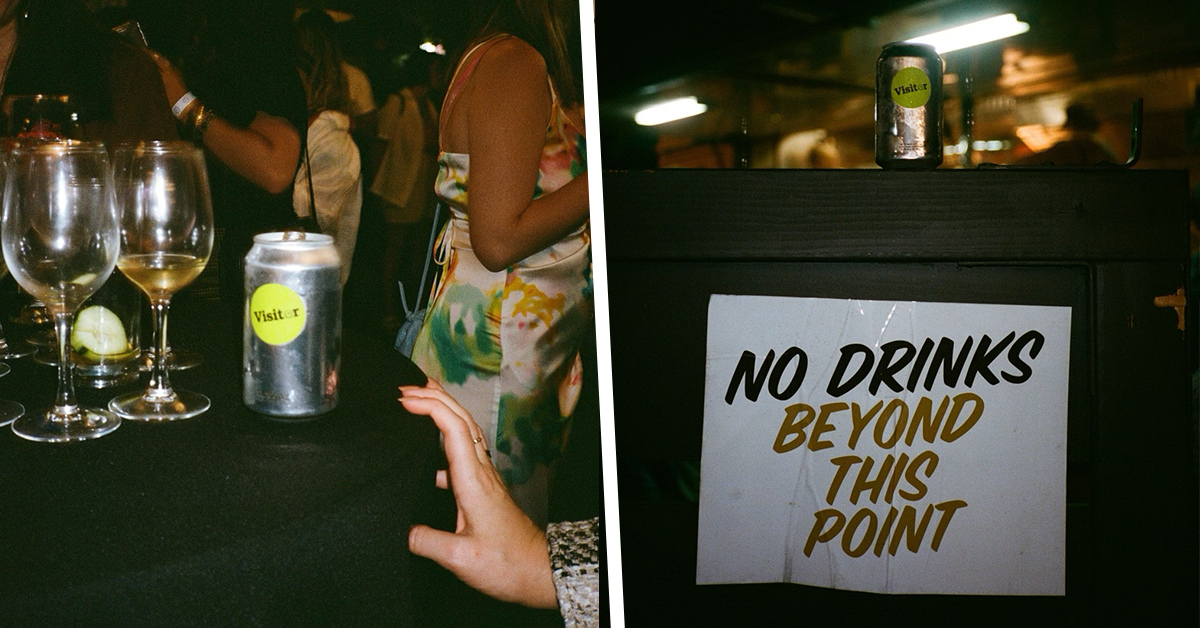
Music festival season is officially in full swing as of this month, with Bonnaroo taking over rural Tennessee this past weekend and Governor’s Ball closing out the prior weekend in New York. But something looks different this time around: thanks to rising interest driven by young consumers, some next-gen non-alcoholic drinks are slowly finding room to grow at live events.
The size of the opportunity is clear: NA beverages (encompassing no- and low-ABV drinks) have seen huge sales gains in the last year with volumes growing 9% in 2022 with compound annual growth rate (CAGR) expected to grow an additional 9% between 2022 and 2026, according to IWSR Drinks Market Analysis.
With a few notable exceptions – see music promoter Live Nation’s $15 million investment partnership with canned water brand Liquid Death – most on-premise gains have come in NA-specific bars, local music venues, pop-ups or smaller festivals where there is a lower cost of entry than mainstream events and there is less of a hurdle to educate consumers on the products. But like a local band eyeing its big break, zero-proof brands are hoping a strong grassroots presence will help them elevate to a bigger stage and push the category further into the mainstream.
The Opportunity In Smaller Events
Before looking to enter concerts and other events, many zero-proof brands are first seeking to establish some traction through gatherings focused specifically on sober lifestyles.
Launched last summer by co-founders Kayla Mason and Sarah Pretorius, marketing and public relations firm SipSteady works exclusively within the NA category. The company’s specialty is pairing NA beverage companies with performers and venues: SipSteady connected Brandon Theis (aka The Orchestrator) with adaptogenic, alcohol-free brand Psychedelic Water for an event at artist Meow Wolf’s Convergence Station permanent exhibition space in Denver, and Mason and Pretorius secured Kansas City festival Boulevardier’s first Zero Proof Lounge this year with activations for Drink Nope, Psychedelic Water and recently crowned BevNET Live Beverage Showdown winner Parch.
The PR and marketing team has also stepped out on the stage for their own duet launching NA pop-up events called Dry Vibes, a weekend-long soiree featuring alcohol-free parties, tasting events and presentations as well as yoga classes, sound bath workshops and other wellness-related activities. The sober-curious event had its inaugural weekend in Kansas City in mid-January bringing brands like Ghia, Ritual, Little Saints and Drømme nootropic elixirs among other together in a “non-alcoholic alchemy,” Mason said. The weekend included NA parties, tasting events and presentations as well as yoga classes, sound bath workshops and other wellness-related activities.
The team has other Dry Vibes weekends planned in other cities including Philadelphia and Houston.
“Dry Vibes is to amplify what it looks like to create an event where it is purely alcohol-free but still as relevant and attracts a very diverse crowd of all ages,” Pretorius added. “It really speaks to the millennial and Gen Z demographics.”
This makes sense because although more and more consumers are finding reasons for drinking less, the trend is being fueled by younger-age drinkers. According to data collected through Drizly’s 2023 Consumer Trend Report, “23% of Gen Z and 24% of millennial respondents reported drinking non-alcoholic beer, wine or spirits often.” In total, NA categories (beer, wine and spirits) on the beverage alcohol delivery platform grew 29% in 2022 YoY.
For live events like music shows, a good portion of music venue revenue is drawn from concessions and the answer to the slump in alcohol sales among Gen Z could be offering more NA beverages.
Founder Chelsea Monroe went alcohol-free in 2020 and launched Mixed Without to build a community of sober-curious individuals. She left her job managing a catering company in the Houston area when she realized there was an opportunity for NA brands at small festivals, conferences, weddings or fundraising events that she had overseen.
Typically in the event-planning and catering, alcohol is marked up three to four times. Pitching NA specific bar menus to clients there is a level of education to teach them that NA beverages can be more expensive because there isn’t the scale or price breaks that big alcohol has ingrained in its pricing, she said. “But people do pay it because they want to be inclusive.”
Mixed Without hosted all NA bars and activations at Austin-based television festival ATX TV this year running multiple bars at various locations for all four-days of the event. Monroe and Mixed Without is planning to work with SipSteady on the Dry Vibes weekend in the Houston area later this year.
But aside from small activations at large events like Coachella’s partnership with Los Angeles-based NA bottle shop New Bar this year, NA’s exposure at live music remains relatively small.
Last year, Scott Wagner, founder of Oregon-based beverage sponsorship sales and activation company WagWorks, noticed a growing interest for zero-proof options at Pickathon, a family-friendly experiential music festival outside of Portland, Oregon.
At this year’s edition, Wagner plans to position the NA beverage concessions in a “sampling corridor” to foster more educational experiences for the mindful drinking and sober-curious communities. If the experiment works, he plans to use that momentum to start offering zero-proof packages to promoters at larger events.
“It’s never going to compete with alcohol in terms of gross sales or anything, but it has a spot and it’s emerging, it’s growing and I think taking advantage of that and fostering that is interesting to me,” he said.
For startups with limited resources, seeding at venues is a low-cost way to play the long game, according to Craig Lewis, co-founder and CEO of Flyers Cocktail Co.
“At a venue, you don’t necessarily have to do any activation or stands or staffing or anything,” he said. “Your fee is actually really exposure to ten to twenty thousand people per week, every week, all year.”

Making Non-Alc Cool
Part of bringing NA brands to the mainstream revolves around shedding the stigma of non-alcoholic beverages that has existed for so long in the category. Founded in 2017, Athletic Brewing has made huge strides for NA beer becoming one of the largest NA brands across the category. The company was recently valued just under $500 million and accounts for 20% of all U.S. non-alcoholic beer sales in 2022, according to a profile in Forbes.
Athletic Brewing’s success has created a lane at live music venues for NA beer, said Rob Jensen, co-founder of Chicago-based NA beer company Visitor. “We started Visitor to resonate within cultural spaces beyond the specific niches that many NA beers target with their branding and marketing.”
“In the music space, venues are realizing that alcohol consumption in general is down,” Jensen said. “Music venues don’t make money on ticket sales. The bar is the main revenue driver and as alcohol consumption declines, it’s imperative that other good options are available at the bar.”
“To be honest, it’s not a hard sell,” said co-founder David Gallagher. “Bar managers are looking at the options that are out there and our brand tends to resonate with them over the others.”
This includes staff at music venues and bars who have taken to Visitor beers as the shift drink of choice. The brand has seen sales increase as bar managers are buying Visitor beer for staff as well as customers.
“Mindful drinking” is a term often used to describe how consumers are more discerning about what they drink when socializing. According to a survey conducted by advertising insights company NCS Solutions, 34% of respondents are trying to drink less in 2023 with over half (56%) of non-drinkers citing a lack of desire to drink as the primary reason for choosing NA options.

For the time being, Visitor is taking a slow and steady approach to its live music activations, recently announcing it had signed on to sponsor the Flagstaff Fadeaway festival in Arizona. The company has 125 on-premise accounts and distribution 160 off-premise retailers. It has sponsored a number of small parties, underground music events in Los Angeles and partnered with independent music venues like The Empty Bottle, El Rey Theater, Schuba’s + Lincoln Hall and The Hideout in Chicago.
Things get more difficult when it comes to aligning with the true powerhouses in live entertainment: AEG and LiveNation. But there are signs that the big players are starting to take notice: see NA bottle shop New Bar’s partnership with Coachella earlier this year.
For New Bar to operate at Coachella, founder and CEO Brianda Gonzalez knew the price tag would be steep but it became a matter of a “marketing play versus a sales driver,” she said. The company partnered with a number of NA brands in a tiered system to offset the high cost of entry (Gonzalez declined to comment on the actual price AEG charged New Bar to operate). Higher paying brands received multi-SKU placements and added value in marketing support while emerging NA brands could invest less and received more scaled back opportunities with no marketing support.
For New Bar to operate at Coachella, founder and CEO Brianda Gonzalez knew the price tag would be steep but it became a matter of a “marketing play versus a sales driver,” she said.